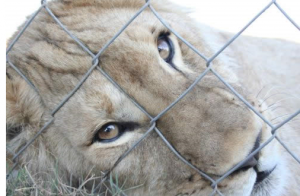News
Latest Lion Aid News
The spread of canned hunting?
Thursday 14th April 2011
|
About a year ago (June 2010) Ian Michler, a contributing reporter for the South African magazine Africa Geographic, wrote an interesting blog on their website about a number of captive-bred South African lions imported into Botswana. He indicated that these imports of lions (based on CITES data) matched his suspicions that canned hunting operations could be getting established in Botswana (BW), and that he was “almost certain” these and other associated practices were now operating or imminent. Why else, he says, would Botswana, a country with one of the few remaining viable wild lion populations in the world, be importing captive lions? Michler was roundly criticized by some respondents to the blog but Michler insists he is collecting further information and that in his final analysis (we still await) will be highly revealing. Reviewing the CITES data Michler used shows that he is right to some extent. Botswana imported South African (SA) captive bred lions in 2002 (4), 2003 (9), 2004 (4), 2005 (4) 2006 (3) 2007 (12) 2008 (17) and 2009 (1). That is a total of 54 lions. Why import so many lions? Michler indicates that a wild lion trophy hunting moratorium imposed by Botswana in 2008 might have something to do with it, and that the imported lions could be used as breeding stock for an eventual emergence of canned hunting in Botswana. He encourages the Botswana Government and the wildlife authorities to explore what is happening behind the fences of Botswana’s private game farms to get to the truth. We agree. But Michler, perhaps not fully realizing the complexities of the import/export data on the CITES website, missed something fishy. In 2005, 4 captive-bred lions were exported from SA to BW, and in that same year BW exported 4 captive bred lions to SA. In 2006, 3 lions followed the same route. In 2007, 6 lions took the journey, and in 2009 one did. So 14 lions were shuffled. So what do we make of this? There are many possible scenarios:
Scenario 1 is pretty straightforward. Scenarios 2 and 3 are possible if you consider the dire straits in which SA captive lion breeders find themselves these days with limited genetic stock. A Botswana origin lion (real or re-branded) is worth very much more than yet another SA stock lion. So either the SA dealers/breeders are making truthful exchanges or re-branding to the detriment of their partners?
Tags: Captive Bred Lions, Categories: canned hunting/Captive breeding |
Posted by Pieter Kat at 13:09
No comments have been posted yet.
Add a new comment
Existing user
New user sign up




